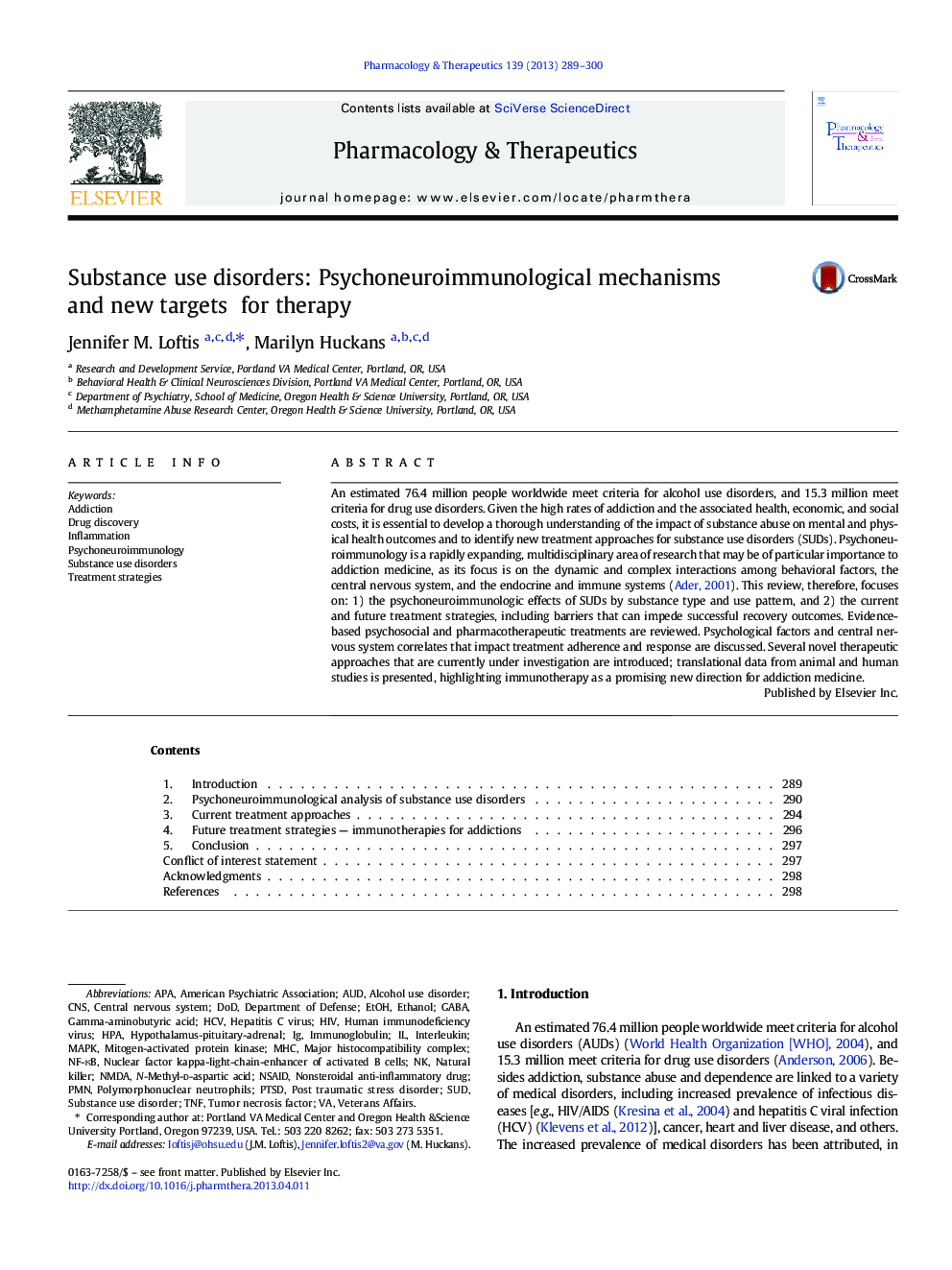| کد مقاله | کد نشریه | سال انتشار | مقاله انگلیسی | نسخه تمام متن |
|---|---|---|---|---|
| 2563209 | 1127503 | 2013 | 12 صفحه PDF | دانلود رایگان |

An estimated 76.4 million people worldwide meet criteria for alcohol use disorders, and 15.3 million meet criteria for drug use disorders. Given the high rates of addiction and the associated health, economic, and social costs, it is essential to develop a thorough understanding of the impact of substance abuse on mental and physical health outcomes and to identify new treatment approaches for substance use disorders (SUDs). Psychoneuroimmunology is a rapidly expanding, multidisciplinary area of research that may be of particular importance to addiction medicine, as its focus is on the dynamic and complex interactions among behavioral factors, the central nervous system, and the endocrine and immune systems (Ader, 2001). This review, therefore, focuses on: 1) the psychoneuroimmunologic effects of SUDs by substance type and use pattern, and 2) the current and future treatment strategies, including barriers that can impede successful recovery outcomes. Evidence-based psychosocial and pharmacotherapeutic treatments are reviewed. Psychological factors and central nervous system correlates that impact treatment adherence and response are discussed. Several novel therapeutic approaches that are currently under investigation are introduced; translational data from animal and human studies is presented, highlighting immunotherapy as a promising new direction for addiction medicine.
Journal: Pharmacology & Therapeutics - Volume 139, Issue 2, August 2013, Pages 289–300